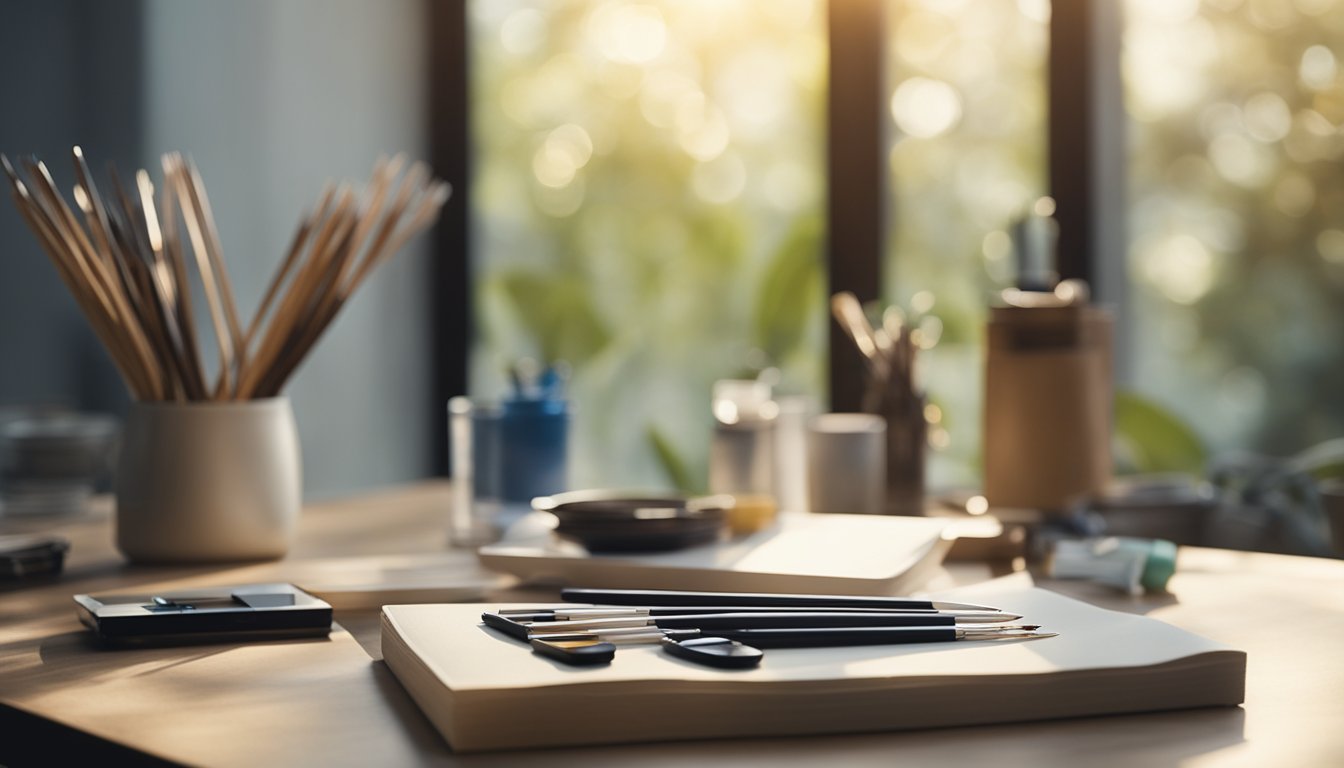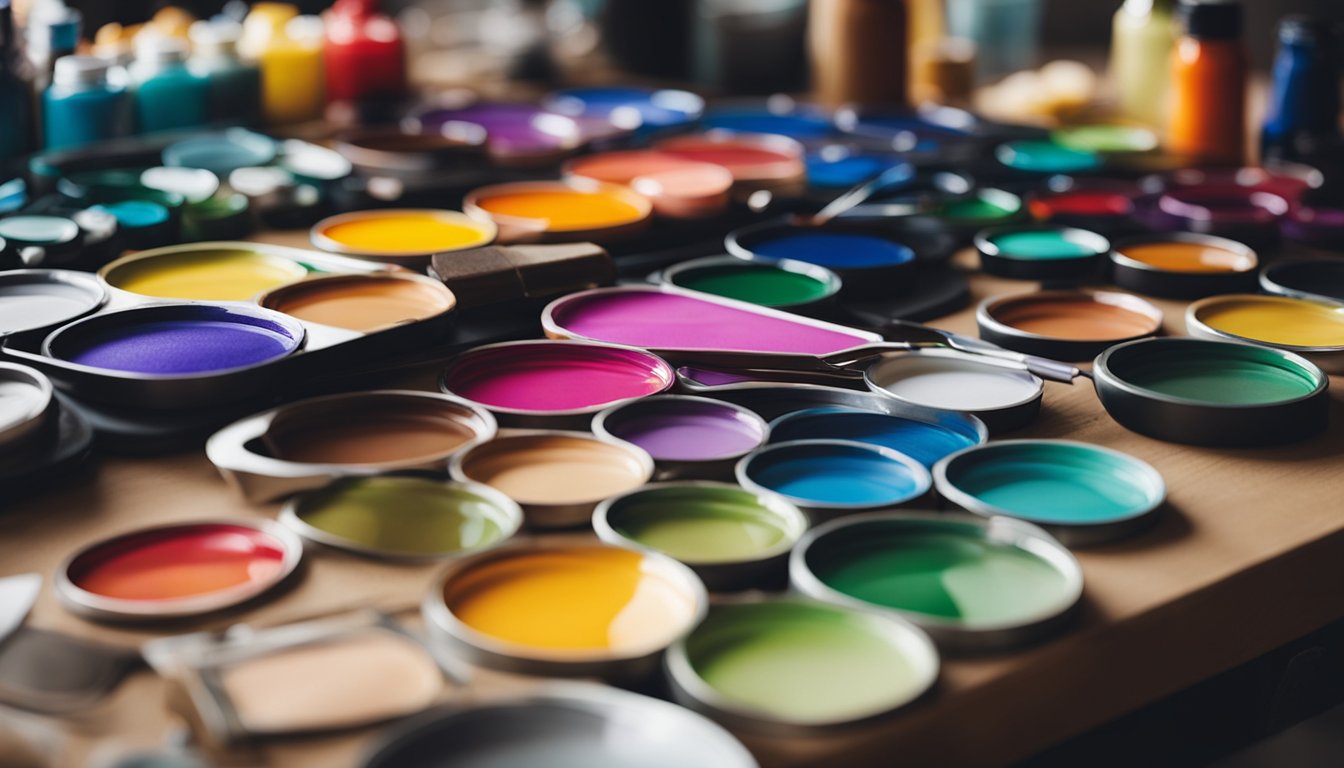Late updated: 22 Jul 2024 12:07
Written by: Ella Thompson
Art Therapy Benefits In Addiction Recovery: Enhancing Healing and Wellbeing
Art therapy has emerged as a potent ally in the battle against addiction, offering a unique approach to healing. Through creative art-making, individuals are able to express emotions that words often fail to capture. By engaging in art therapy, those in recovery can explore and address deep-seated issues related to their addiction in a safe, non-confrontational environment.

Participation in art therapy not only bolsters self-esteem but also helps to build confidence in expressing oneself without the need for verbal communication. This therapeutic technique provides a constructive outlet for processing painful emotions, aiding in emotional release and mental health improvement. The American Art Therapy Association advocates for these benefits, emphasising the therapy's role in supporting addiction recovery and overall mental well-being.
As we navigate through the recovery journey, art therapy becomes a crucial tool for self-expression. It assists individuals in managing stress and cultivating a stronger sense of self. By focusing on creative processes, we find solace and strength in our artistic endeavours, paving the way for a healthier, addiction-free future.
Key Takeaways
- Art therapy aids in expressing emotions related to addiction.
- It builds self-esteem and confidence in non-verbal expression.
- Creative processes support emotional release and mental health.
Understanding Art Therapy in Addiction Recovery
Art therapy can significantly aid those in addiction recovery by offering a safe outlet for emotional expression and facilitating self-awareness. Through painting, drawing, and other creative activities, individuals can manage complex emotions and gain insights into their mental health condition.
The Role of Art Therapy in Managing Emotions and Trauma
Art therapy enables individuals to process deep-seated emotions such as grief, anxiety, and depression. By engaging in activities like painting or drawing, they can find a safe outlet for painful emotions. This creative process can release pent-up feelings and reduce emotional distress.
We know that many in recovery deal with unresolved trauma, including PTSD. Through guided sessions with an art therapist, participants can confront and work through traumatic memories. This approach can bridge the gap between conscious and unconscious emotional states, aiding in emotional regulation and healing.
Key Benefits:
- Emotional release
- Safe expression of painful emotions
- Reduction in symptoms of PTSD and other traumas
Expanding Communication and Self-Understanding
Art therapy fosters improved communication skills by enabling individuals to express themselves visually when words are insufficient. This method can be particularly beneficial for those who struggle with verbalising their experiences and feelings. Art therapy bypasses cognitive defences and penetrates deeper layers of the psyche.
For individuals in denial of their addiction or facing self-esteem issues, creating art can enhance self-awareness and insight. This form of therapy encourages introspection and self-reflection, promoting greater understanding of one’s emotions and behaviours. Consequently, patients gain a clearer perspective on their addiction and recovery path.
Key Benefits:
- Enhanced self-expression
- Increased self-awareness and insight
- Improved communication skills
Creative Processes and Practical Benefits in Recovery

Creative processes in art therapy offer several practical benefits for individuals in addiction recovery. These benefits include enhancing focus, developing new skills, strategies for long-term sobriety, and using various art activities as therapeutic tools.
Enhancing Focus and Building New Skills
Art therapy activities like painting, sculpting, and journaling can significantly improve our concentration and problem-solving skills. By immersing ourselves in the creative process, we channel our energy toward productive and enjoyable tasks, making us less likely to succumb to triggers or cravings.
Engaging in visual arts and activities such as colouring books or creating music helps in stress reduction and mindfulness. This, in turn, aids in managing our stress and boosting our mental clarity. Developing these new skills through artistic expression can increase our sense of agency and competence, which is crucial in overcoming addiction.
Strategies for Relapse Prevention and Long-Term Recovery
Integrating art therapy into our daily routine serves as a powerful strategy for relapse prevention and supporting long-term recovery. The creation of art helps in establishing healthy coping mechanisms to deal with stress and emotions, which are often triggers for relapse.
By providing a distraction from cravings and negative thoughts, art therapy encourages us to focus on constructive activities. This shift in focus can be incredibly effective in long-term addiction management. Additionally, participating in group activities like creating collective murals or collaborative music projects fosters social skills and builds a support network that is beneficial for sustaining recovery.
Art Activities as Therapeutic Tools
Various art activities serve as therapeutic tools that facilitate our emotional and psychological healing. Techniques such as stress painting, clay sculpting, and digital art allow us to express complex emotions non-verbally, providing a safe outlet for pain and reducing the shame associated with addiction.
Incorporating art therapy in evidence-based addiction treatment programmes offers holistic treatment benefits. Creative activities like visual journaling or music therapy can be tailored to individual needs, making therapy more engaging and personalised. We can also join support groups that focus on artistic endeavours, which can further enhance our motivation to change and commitment to recovery.
Through these diverse methods, art therapy provides a multifaceted approach to healing, encompassing both emotional relief and practical strategies for maintaining long-term sobriety.
Frequently Asked Questions

Art therapy offers substantial benefits in addiction recovery, enhancing mental health, emotional well-being, and providing key coping strategies.
How does art therapy support mental health during addiction recovery?
Art therapy provides a non-verbal outlet for individuals to explore and process complex emotions. This approach can alleviate symptoms of anxiety and depression by reducing stress levels and promoting a sense of accomplishment. It's particularly beneficial in uncovering and addressing underlying issues such as trauma and grief.
What role does creativity play in supporting rehabilitation from substance abuse?
Creativity engages the brain in a way that allows for new perspectives and solutions. In rehabilitation, creative activities like painting, drawing, or sculpting can disrupt negative thought patterns and behaviours. This fosters a sense of hope and possibility, which is crucial for sustained recovery. By engaging in creative processes, individuals can rebuild their self-esteem and develop a constructive way to handle challenges.
In what ways can engaging with art therapy enhance emotional well-being for recovering addicts?
Participating in art therapy enables recovering addicts to express themselves without the need for words. This form of expression can be liberating and empowering, fostering emotional resilience. Art therapy sessions help individuals confront and manage painful emotions constructively, nurturing their overall sense of well-being and improving their mood.
Can art therapy contribute to relapse prevention strategies?
Art therapy can be an effective tool in relapse prevention by offering ongoing support and a healthy outlet for stress and other triggers. Through continuous engagement in creative activities, individuals can develop new coping mechanisms that are less likely to lead back to substance use. This practice helps maintain emotional stability and reinforces long-term recovery commitments.
How does art therapy facilitate self-expression and coping mechanisms in individuals overcoming addiction?
Through art therapy, individuals can safely explore and articulate their feelings and experiences related to addiction. This process helps develop healthier coping strategies by transforming negative emotions into creative outputs. As a result, individuals learn to manage their emotional responses more effectively, which is vital for overcoming addiction.
What are the psychological impacts of art therapy on people dealing with substance dependency?
Engaging in art therapy can significantly improve mental health outcomes for those dealing with substance dependency. It can decrease symptoms of depression and anxiety, boost self-esteem, and create a sense of empowerment. Additionally, the reflective process of creating art helps individuals understand and reshape their internal narratives, contributing to more positive psychological states.
